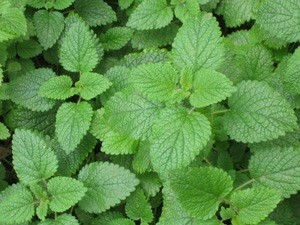Landscaping can take a huge chunk out of a household's budget, but an untidy yard can really pull the entire look and value of a home down. Curb appeal is important to both those who look at a home and those who live in it. It's welcoming. It's also not as expensive to maintain as one might think.
An easy way to maintain a yard is to plant low maintenance, quick spreading plants that fill the spaces with green. The ultimate goal of landscaping is to avoid maintenance. By growing plants that fill a space, weeding is significantly lessened. An area that is planted with black-eyed-susans will quickly fill in with dense plants that choke out any weed seedlings. Likewise, herbs like mint take over flower beds quickly, covering the entire ground with growth. The trick to dealing with these possibly invasive plants is to plant them in areas that need to be taken over. Don't plant mint and expect to grow marigolds next to it; it will invade every inch of growing space in a few growing seasons.
For those shady areas that refuse to grow grass or any other planting, opt for something positively invasive like ivy. English ivy will crawl and cover the ground easily in shady areas. The only maintenance it needs is trimming to prevent it from crawling up tree trunks. Not much will grow at the base of a maple tree, but ivy will fill in the area beautifully while requiring very little care. Crawling vinca works similarly in sunny locations.
Borders are important ways to keep plantings and landscaping materials in check. However, edging, weeding, and repairs can be eliminated without the border. If you're growing a ground cover planting like ivy or vinca, all you'll need to do at the border is cut close with the lawn mower. This will keep a nice clean line at the edge of growth with very little cost and effort.
Try to create a natural and easily maintained border where one is needed. Natural rocks found throughout the yard can be lined to create a simple and sturdy border. When cutting the lawn, cut as closely to the rocks as possible. When they slide, slide them back. They won't break, erode, or corrode. The most they'll do is attract a few stray grass stems between them and possibly migrate a bit in spring.
Mulch is a great groundcover that provides a clean look around plants. However, it breaks down over time requiring not only maintenance but money to replace. Skip the yearly mulching in large areas and look into landscaping stone. River stone and other products like it cost around $50 for each cubic yard. This is a significant initial purchase, but when the stone is still in place and blocking weeds three years from now, the benefit will be apparent. Eventually new stone might need to be added, but it will certainly last longer than bark mulch and it will discourage a variety of pests from moving in.

Add your voice! Click below to comment. ThriftyFun is powered by your wisdom!
I'd recommend thinking hard before placing river rock in the garden. The people who lived in this house before us put river rock in the beds in the front yard. They had a few foundation bushes, and no flowers. It wasn't my style of garden (my dad was a landscaper, so I'm used to lots of variety and flowers), so we decided to remove it. Years later, it's still difficult to garden the beds up front, because every time I try to dig I hit rocks.
So while it might simplify maintenance, if you want to change your plantings with any frequency the stones will make it very difficult. It would be good for someone who wants to put a few bushes in and never change it.
One way to reduce your mulch cost is to save those fall leaves in a pile and then once they have decomposed, use them as leaf mulch. Saves on the fall chore of bagging them or hauling them to the curb.
Living in S. Calif. I have found that succulents like jade plants are very easy to take "cuttings" from - all you have to do is break off a sprig & just put it in soft moist ground! Spider plants are also "invasive" in our climate and the small plants they make are also easy to transplant. Love our mint patch - & have found that mint is also easy to transplant.
I agree with Mrs. Story, and would add that although mulch does degrade, it puts valuable nutrients in the ground while doing so! And with smaller plantings, river rock could allow rainwater to run off instead of soaking in, unless it's just one layer deep!
Add your voice! Click below to comment. ThriftyFun is powered by your wisdom!